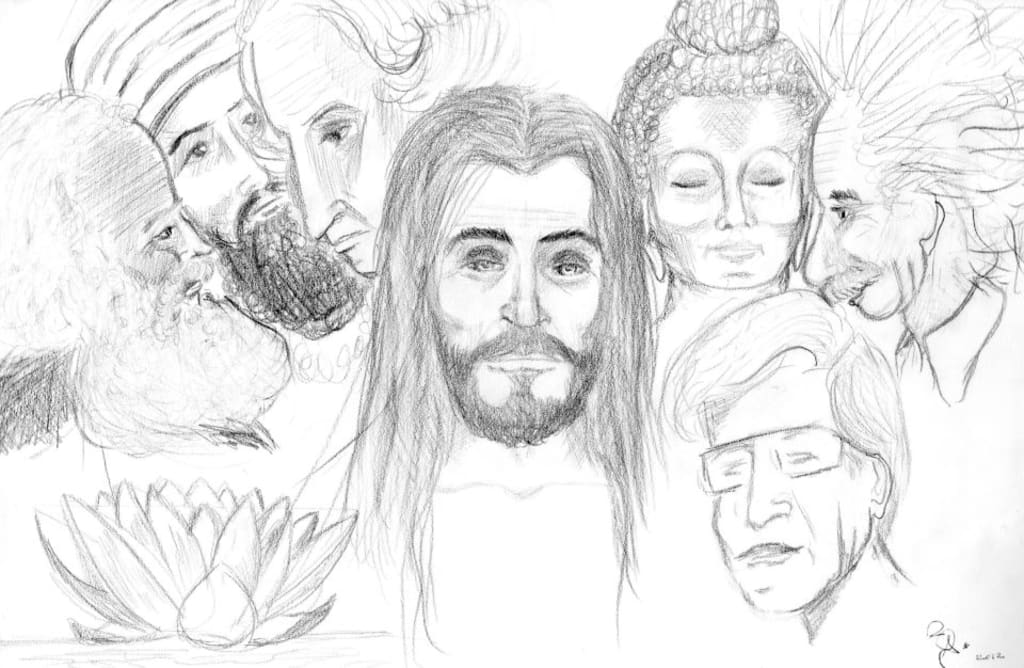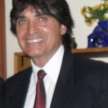Epiphanies, Personal and Public
On the Nature of Premises and Truth and 1984

Epistemology and ontology are sciences concerned with truth, whether it exists and whether even if it does exist, it is ascertainable. They are fields of great interest to academics, especially philosophers, but provide scant confidence or comfort to the population at large which finds them ethereal, esoteric and of little quotidian use. The language of academia seems mystifying to most people. Take theories for example. Most people consider a theory an unproven hunch (e.g., the theory of evolution as perceived by creationists) but in the world of academia, theory is as close to truth as we ever get. What most people perceive as theories, academics and scientist refer to as thesis and hypothesis which evolve into the realm of theory only when successfully put to proof. The truth is that popular truths like gravity and basic mathematics are “mere” theories” while many concepts the public views as theories are mere thesis or hypothesis (e.g., intelligent design).
A more relevant question to most people in the United States today (today being on or about the first day of June, 2017) is whether or not truth is relevant. Apparently not all that much. What matters is perception and that can be created through constant, widespread repetition. Perceptions seem to create working realities with real consequences, albeit all too often catastrophic. As George Orwell posited in 1984, history having become a bit more like a novel, changing the endings and shifting the blame is easy enough to obfuscate almost anything, especially within the confluence of mass and social media.
Over the years I’ve had a number of careers encompassing different professions but the field of academia was both my initial and now my latest avocation. When engaged in teaching, my focus was on languages, history, law and political science. Among many other courses, I taught History of Political Ideas and interestingly, the principal text I used was the same one I used when I took the course more years ago than I care to document. I like the course although, being survey in nature, it goes into very little depth, just tastes and teasers for future follow-up by those with the interest and opportunity required. Still, it keeps my recollection of collected wisdom (as well as of collected errors) fairly fresh. I recall that course now most of all because of how sequentially enamored I became with each philosopher as we studied him (can’t recall studying a “her”, so times have certainly changed, as they should), and I recall how confused I was that obvious truths could be so contradictory. For several years I assumed that, as was the alleged case in religion, contradictory truths merely involved understanding mere humans were incapable of attaining. Then I learned about “premises”, pesky things, easy to manipulate and pervert in order to attain desired results. Kind of like the endings in historical novels or government propaganda or legal cases, – we start with the conclusions we like, look for the facts necessary to support them, perform the analytic exercise in logic and finally, based on that inverse logical process, find the premises that fit. We are then surprised when the “logical” conclusions fail to conform to reality.
Eventually I realized that the fault primarily involved two things, the frequently inverse nature of the operation mentioned above and the premises. Logical analysis is always perfect inter se but faulty premises frequently (albeit not always) lead to wrong conclusions. And that’s where the philosophical trick lay: philosophers (and propagandists and lawyers, etc.) construct their own premises and thus justify their own philosophies through seemingly logical exercises. The quest for truth is very different than the game of rhetoric where victory in argumentation is the goal, and smoke and mirrors are much more convenient than facts.
After years of playing with premises, I realized several things. First, thanks to David Hume, that notwithstanding John Locke’s seminal pronouncements, self-evident premises are not necessarily correct premises and that in philosophy, almost all academics and scientists honestly seeking proximity to truth rely on premises incapable of being proved. That is the seeming nature of most if not all fundamental principles which is why, even in mathematics and physics, we have theories rather than absolute truths: what the philosopher David Hume denominated “conventions”; premises we treat as though they were true because they generally function and are thus convenient and useful, at least for the time being, but with the understanding that they will be replaced if proven wrong. Unfortunately, the latter aspect all too frequently proves very difficult. We are all too frequently disinclined to abandon things and ideas with which we’ve grown comfortable. Unlike most of us however, good mathematicians and good physicists generally acknowledge the limitations inherent in conventions and theories and maintain open minds when events prove their theories wrong. In academia and science, while it is usually impossible to prove premises definitively, it is definitely possible, through trial and error (the scientific method) to prove that many premises are wrong and thus, through a process of observation based elimination, to get closer and closer (at least statistically) to some form of truth (or at least, to more useful conventions).
While epistemology and ontology may at first blush lack quotidian relevance to the bulk of the public, perhaps in actuality they are especially relevant today, especially with respect to the attitude towards truth held by the profession most responsible for the functioning of the complex of confusing social phenomena we refer to collectively as “democracy”, at least in so far as we are referring to functional democracy rather than the dysfunctional systems in which we find ourselves enmeshed. That profession is neither politics nor law, although they are both essential, but rather, journalism, a profession that has unfortunately joined the former two in public perception as inherently dishonest.
Without complete and accurate information, democracy is very unlikely to function other than as a result of fortuitous coincidence. Unfortunately, the concept of journalism has been enmeshed in the very different concepts of political and civic activism, the latter being concerned with results rather than the quest for truth and the former, which must be fixated on such quest, has lost that focus. Thus, too many of today’s purported journalists, especially in the United States, at least in the mainstream media, are not so much concerned with truth as with advocacy of particular perspectives. Consequently, using techniques discussed above, they start with their preferred conclusions, cull the facts to focus on those that will support them, present the purported facts using techniques associated with logic and, voila, we are fed information that tastes like the truths we’d like to hear but have little to do with inconvenient reality. There is an interesting argument that while activist activities are protected in the United States by the First Amendment’s provisions relating to “abridging the freedom of speech, … or the right of the people peaceably to assemble, and to petition the government for a redress of grievances”, they are not protected by the judicially evolved special protections involving “the press” which are much more broad.
In what too frequently passes for journalism today but is really no more than propaganda (whether civic and political activism or behaviorist control techniques), truth is irrelevant and creation of a verisimilitude of truth in the expectation that it will work, at least for a while (e.g., an electoral cycle), is enough, especially when through management of our sources of information, our inadequate memory can be manipulated in sequential Orwellian links. It’s almost as if the Lord’s Prayer had been perverted and instead of praying for our daily bread we are awaiting the arrival of the day’s version of the truth.
As though we’ve been trapped in a time loop and it’s always 1984.
_______
© Guillermo Calvo Mahé; Manizales, 2017; all rights reserved
Guillermo Calvo Mahé is a writer, political commentator and academic currently residing in the Republic of Colombia. Until recently he chaired the Political Science, Government and International Relations programs at the Universidad Autónoma de Manizales. He has academic degrees in political science, law, international legal studies and translation studies and can be contacted at [email protected]. Much of his writing is available through his blog at www.guillermocalvo.com.
About the Creator
Guillermo Calvo
Former chair, Political Science, Government and International Relations Programs at the Universidad Autonoma de Manizales. My university degrees are in political science, law, international legal studies and translation studies.
Enjoyed the story? Support the Creator.
Subscribe for free to receive all their stories in your feed. You could also pledge your support or give them a one-off tip, letting them know you appreciate their work.






Comments
There are no comments for this story
Be the first to respond and start the conversation.